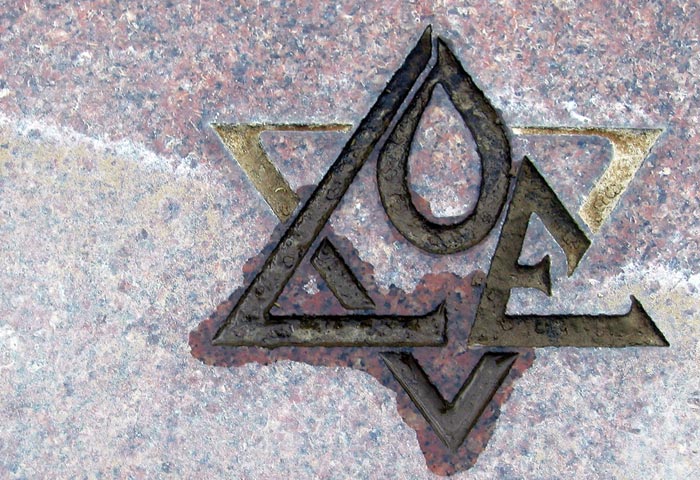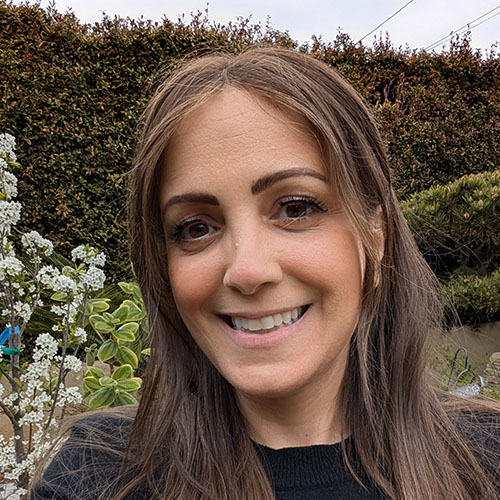
It’s been a strange week for Jews worldwide. For those who have seldom suffered from anxiety before (do such Jews even exist?), this week proved the right time to begin reading Yelp reviews for local psychiatrists. Somehow, a direct Iranian attack against Israel has a way of turning even the calmest Jew into an anxious, smartphone-clutching wreck.
I almost didn’t write this column, which is a continuation of last week’s column on the imperative for Jews today to take better care of themselves physically, emotionally and spiritually. Ironically, while imploring fellow Jews to engage in radical self-love, I fell into a spiral of anxiety and deep concern over the prospect of war between Iran and Israel, because Iranian Jews like myself have a deeper understanding of the unimaginable capabilities of the regime in Tehran.
I enjoyed a few hours of peace after Shabbat ended and I learned that miraculously, 99% of the Iranian missiles and suicide drones were intercepted. But then, I had another thought: What if Iran merely treated the attack as a test to see if and how its weapons could reach Israel? You know, the same Islamic Republic of Iran that is currently Chair of the U.N. Conference on Disarmament? It would have been a near-perfect opportunity for a weapons test disguised as retaliation against Israel.
Naturally, I haven’t been myself this week. “Whenever people see or experience hate, discrimination, or violence, it shakes up their sense of safety and well-being, leading to an increase in stress, anxiety, and general hypervigilance,” Suri Nowosiolski, a Licensed Clinical Social Worker and owner and founder of Cognitive Connections Plus, Inc., told me. “When we live in that heightened emotional state for an extended period, it creates emotional vulnerability — you might find yourself more sensitive to things that might not otherwise have bothered you before.”
In my case, that oversensitivity resulted in waking up in the middle of the night this weekend and believing my Pico-Robertson neighborhood was under Iranian ballistic missile attack. The loud sounds turned out to be fireworks.
I asked Nowosiolski, who is particularly skilled at working with youth, for some tips for self-soothing, because I believe that a radically self-loving Jew, or any self-loving person, for that matter, should know how to soothe themselves. Nowosiolski told me about Dr. Marsha Linehan, founder of Dialectical Behavior Therapy (DBT), who offers various tools that help reduce emotional vulnerability during periods of chronic stress. “Among the ones that I try to adhere to are eating well, sleeping well, avoiding drugs and alcohol, getting enough exercise, and doing at least one thing that I enjoy every day,” Nowosiolski said.
Research has proven the effectiveness of these tools, which professionals call “ABC PLEASE.” Nowosiolski was kind enough to share these tools with me, based on a worksheet that she uses with her clients. The tools are as follows:
Accumulate Positive Experiences: “Engage in activities that bring you joy and fulfillment in the short term and build a life that you find meaningful and satisfying in the long term. This helps create a buffer against negative emotions.”
Build Mastery: “Do things that make you feel competent and in control. Engaging in activities where you can see your progress or success helps boost confidence and reduces feelings of helplessness.”
Cope Ahead: “Prepare for potential emotional situations by thinking about how you can cope effectively. Plan how you might handle a difficult situation and practice your coping strategies in advance.”
As for “PLEASE,” it is an acronym that stands for taking care of your Physical ILlness, Eating balanced meals, Avoiding mood-altering substances, Sleeping well, and Exercising regularly. “This skill emphasizes the importance of taking care of your physical health as a foundation for emotional well-being,” said Nowosiolski.
I asked three Jewish colleagues how they have managed to practice radical self-love. “The greatest and most radical response to a post-Oct. 7 world is to do Jewish — what this means demands a deepened and self-reflective reckoning,” Rabbi Lori Shapiro, founder of The Open Temple in Venice, CA told me. “Doing Jewish in a post-Oct. 7 world is a call for Jewish innovation, risk-taking and creativity. A spiritual, alchemical innovation inflection point of the Jewish heart, mind and soul transforming both what it means to be Jewish as well as what it means to be.”
At Open Temple, Shapiro said, community members “continue to engage in radical ritual, filled with collaborations of music, performance art and community gatherings.” Shapiro invites Jews worldwide to “Join the Jewish Renaissance. From the tears of the Second Temple, rabbinic Judaism was born,” she said. “From the tears and ashes of this time, we will create something more urgent and meaningful together.”
Yael Swerdlow, the Los Angeles-based CEO/founder of Maestro Games, SPC, said that she is “holding even more passionately to my staunch belief in my purpose — why I am here: Tikkun Olam, to repair the world.” Maestro Games offers a groundbreaking virtual reality platform that helps everyone from first responders to those with Post-Traumatic Stress Disorder (PTSD) access nonpharmaceutical intervention and healing.
Swerdlow told me that she is “speaking even more publicly about being actively involved in Jewish and Israeli humanitarian causes.” She serves on the board of Shelters for Israel and, in late January, traveled to Israel “to begin deploying” her company’s trauma healing technology to the country. She also wears her Magen David proudly. “This does not mean I am not worried, or scared,” she said. “I am. It means I will not give in and am fighting back as much as I can against the hate.”
And then, there is Rabbi Daniel Bouskila, the international director of the Sephardic Educational Center who, with his wife, Peni, recently made aliyah. He shared one of the most endearing stories I have heard about unabashed self-love and taking care of oneself on one’s own terms: “On Oct. 9, I went to my local Steimatzky book store in Ramat Hasharon, and decided upon a new form of self-care,” Bouskila said. “I chose a pile of classic Israeli children’s books. When paying, here’s how the conversation went: ‘For your kids?’ ‘No, for me.’ ‘You know what, you’re absolutely right; smart decision.’”
Despite so many grueling (and expensive) preparations, Passover, which begins Monday night, is an excellent time to love ourselves as Jews.
Despite so many grueling (and expensive) preparations, Passover, which begins Monday night, is an excellent time to love ourselves as Jews. The holiday is, in fact, a love letter from ancient Jews to modern Jews, and I believe that any act on behalf of Passover, from hiding a box of chametz-filled cereal in a closed cupboard to cleaning our cars or refraining from enjoying our favorite condiment for just one week, is also an act of self-love, because there is much self-love to be found in self-discipline.
Rabbi Dov Wagner of Chabad at USC reminded me that even in one of the “darker” Torah portions, such as the recent “Tazria” (to give birth”), the focus is on life. Tazria, said Wagner, begins with a brief mention of a woman giving birth — the Brit Milah on the eighth day and some of the attendant rules that follow. “And there seems to be a message there,” he wrote in an email to the USC Chabad listserv: “On positivity. On finding the light and the joy, even as we know that not everything is rosy. That trait has kept our people going for millennia, and I have no doubt that it will continue to keep us growing and thriving until the next celebrations to come.”
Wagner’s words reminded me of Rabbi Tzvi Freeman’s response on chabad.org to someone who asked him why he saw so many clips of Jews in Israel, from IDF soldiers to protesters at rallies to passengers at airports, dancing. “I don’t get it,” the person asked. “The situation is so dire. Why is everyone dancing?”
“If you can express the joy in your heart at seeing the wondrous and eternal togetherness of the Jewish People once again rising to the surface, sing it out loud and let the world know,” Freeman responded. “It’s not mindless. It’s not frivolous. It’s serious joy.”
May we experience a deeply meaningful, eye-opening Passover filled with gently-deflated egos, freedom through self-compassion and the ubiquity of some very serious joy.
Tabby Refael is an award-winning writer, speaker and weekly columnist for The Jewish Journal of Greater Los Angeles. Follow her on X and Instagram @TabbyRefael.


































 More news and opinions than at a Shabbat dinner, right in your inbox.
More news and opinions than at a Shabbat dinner, right in your inbox.